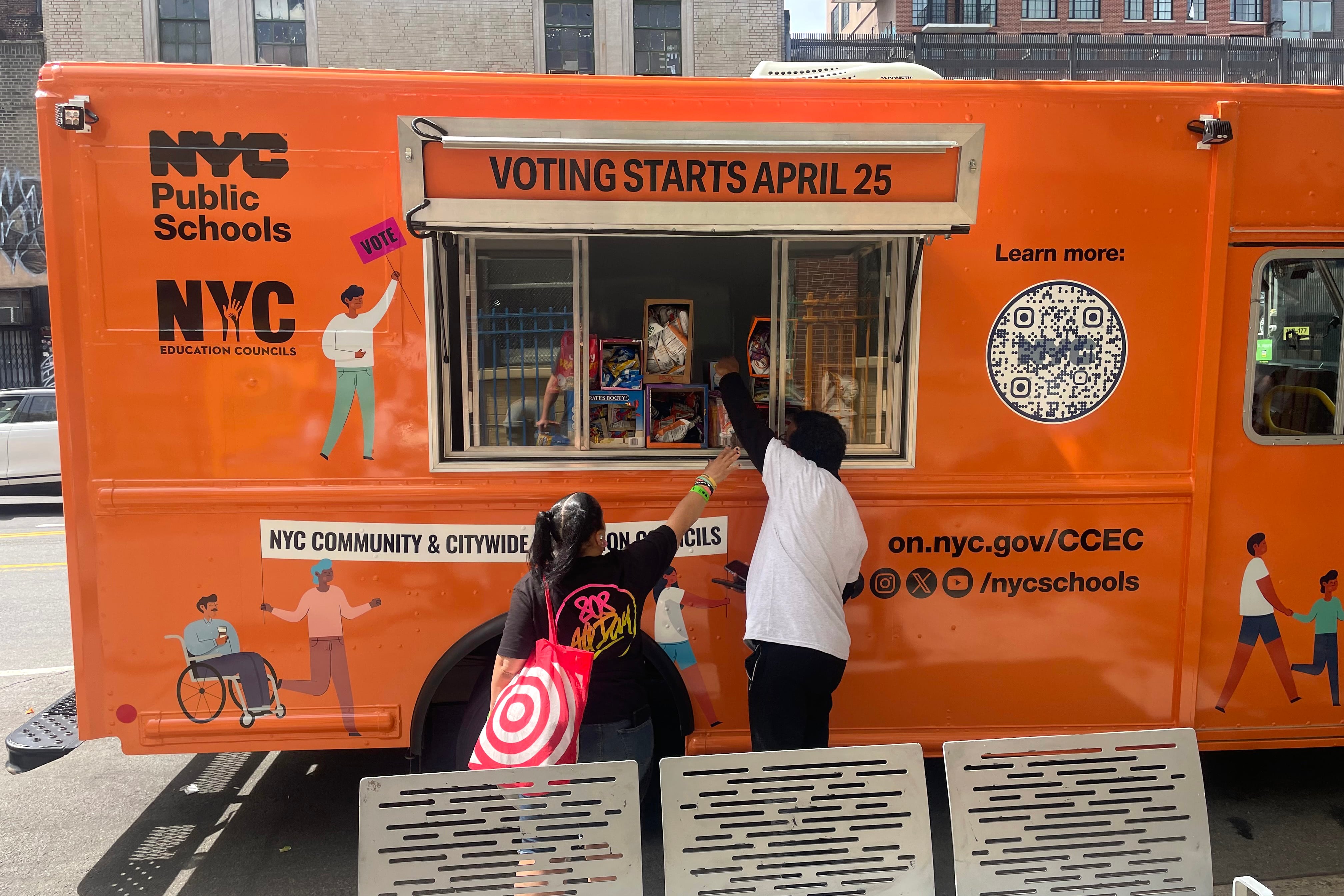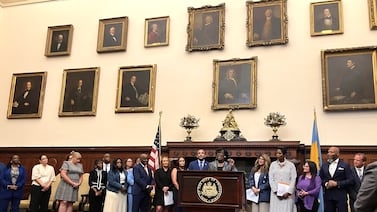Sign up for Chalkbeat New York’s free daily newsletter to get essential news about NYC’s public schools delivered to your inbox.
Just hours into the first day of voting for New York City’s elected parent councils, Education Department officials took the system offline to fix “technical issues,” a spokesperson said.
It wasn’t immediately clear what officials were fixing. But on Friday multiple parents reported glitches and mistakes in the online voting system, including parents appearing on ballots for seats for which they are not running.
As of early Friday afternoon, a message on the online voting page said “voting has been paused, as there are updates being made to the site. We are hopeful to resume this afternoon.”
The setback was frustrating for some Community Education Council candidates who said they’ve been working hard to remind parents to vote and help them troubleshoot, and worry that the technical glitches Friday will make an already complicated process that much more difficult.
“It’s just extremely disappointing because we’ve been working so hard to have our school parent community be involved in this process,” said Alejandro Epifanio Torres, an elementary school parent running for the council in District 1 on the Lower East Side of Manhattan.
During the last election cycle in 2023, only 19,000 parents — or 2% of eligible voters — cast their ballots in the council election. A 2023 Chalkbeat investigation found mismanagement of both outreach and voting administration during the last council elections.
Department spokesperson Onika Richards said a vendor was addressing the “technical issues” with voting. “In the interest of ensuring a fair and accurate process, we have temporarily paused voting,” Richards said. “We are working diligently to resolve any issues by this afternoon, and we expect to resume voting promptly thereafter.”
Debbie Kross, the parent of a high school student in the Bronx who is running as the Bronx borough representative for the Citywide Council on High Schools said when she logged in to vote this morning, she discovered that her name appeared on both the Bronx and Brooklyn ballots.
“I wrote to them immediately and said, ‘remove me,’” she said. Kross said she hadn’t heard back as of early Friday afternoon.
Even though she’s technically eligible to be a Brooklyn representative since she has a child in school there, Kross said she didn’t indicate that she wanted to run there and doesn’t “know anything about Brooklyn schools … I don’t think I would be a good representative.”
Gavin Healy, a council member in Manhattan’s District 2, said he heard widespread complaints from parents about the voting process.
The advocacy group Parent Leaders for Accelerated Curriculum and Education, known as PLACE, sent a press release just before 10 a.m. Friday urging the city to pause the voting process because of “incorrect ballots.”
The Education Department emailed parents shortly after 10 a.m. to notify them the elections were paused — just minutes after sending a reminder to vote, according to screenshots obtained by Chalkbeat.
Education Department officials didn’t immediately say how many parents voted before the site was taken offline and whether they would have to recast their ballots.
Voting remains open until May 13, though it wasn’t immediately clear whether the Education Department would extend that window. Parents vote through their New York City Schools Account, or NYCSA, and can cast ballots for up to three candidates.
Votes for the city’s district-based Community Education Councils and its citywide councils are held every two years. The elected volunteers on the councils have few formal powers outside of voting to approve rezoning proposals, but play an important role in communicating with district officials and representing parents in policy debates.
In recent years, the councils have waded into charged political issues, passing advisory resolutions on sports policy for transgender students and protections for students against President Donald Trump’s executive orders.
Friday’s voting snag comes after critics have repeatedly raised concerns about the city Education Department’s management of the elections. Last November, city Comptroller Brad Lander issued a set of recommendations to improve the election process by shoring up outreach and setting clearer rules for campaigning.
Fivel Rothberg, who until recently worked as an outreach consultant supporting the CEC elections, said the entire concept of relying on NYCSA accounts for voting was “doomed to fail” regardless of glitches because some parents struggle to access them.
“Parents and guardians already have so much on their plate,” he said. “The NYCSA system created one more twisted maze for everyone to navigate in an already complex bureaucracy.”
Healy said the fact that problems continued at the start of this election cycle was unsurprising.
“I do wish at some point they would send this to the Board of Elections,” he said. The Education Department’s Family and Community Engagement department “isn’t really able to do this kind of project, so send it to someone else,” he added.
Michael Elsen-Rooney is a reporter for Chalkbeat New York, covering NYC public schools. Contact Michael at melsen-rooney@chalkbeat.org.
Amy Zimmer is the bureau chief for Chalkbeat New York. Contact Amy at azimmer@chalkbeat.org.







